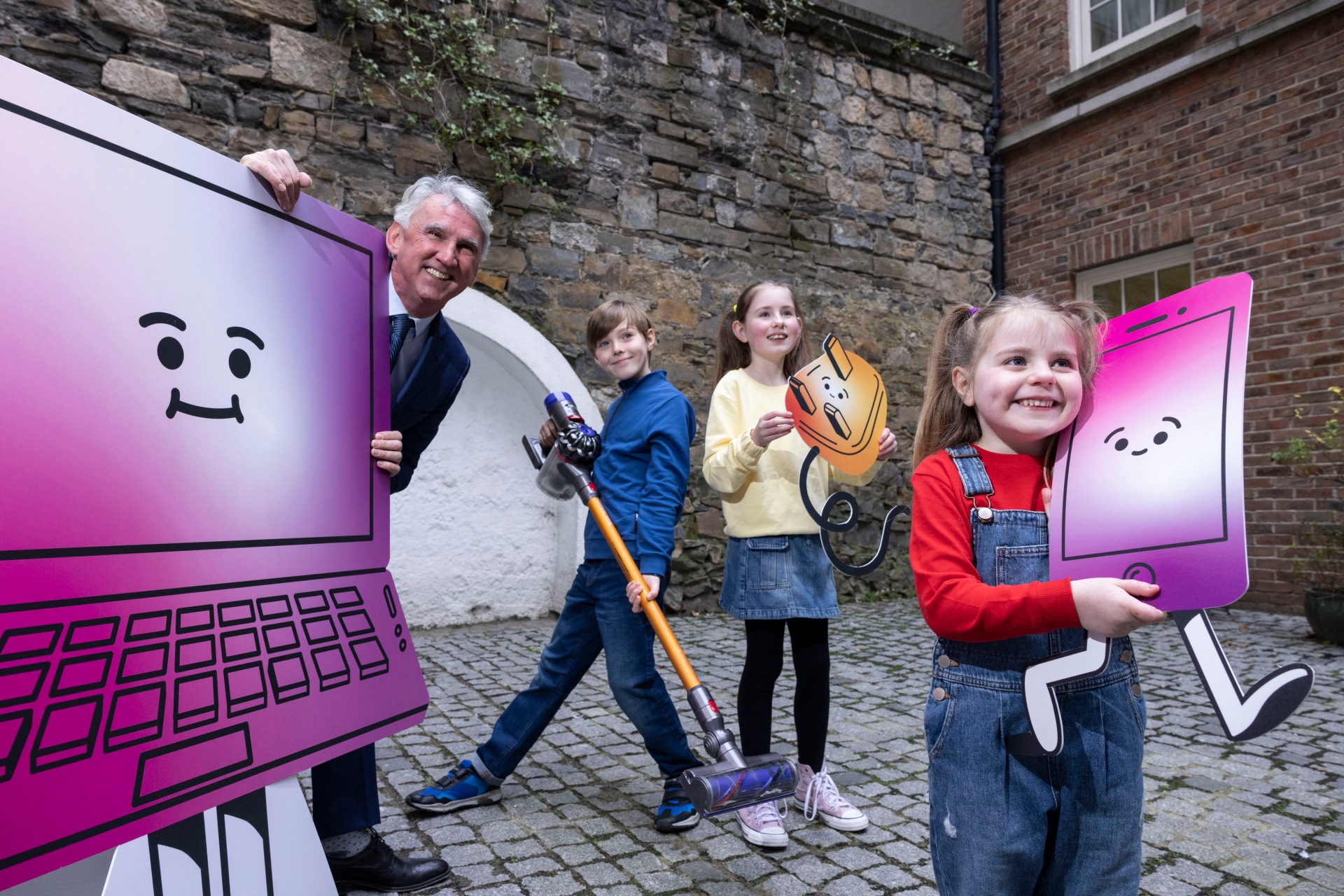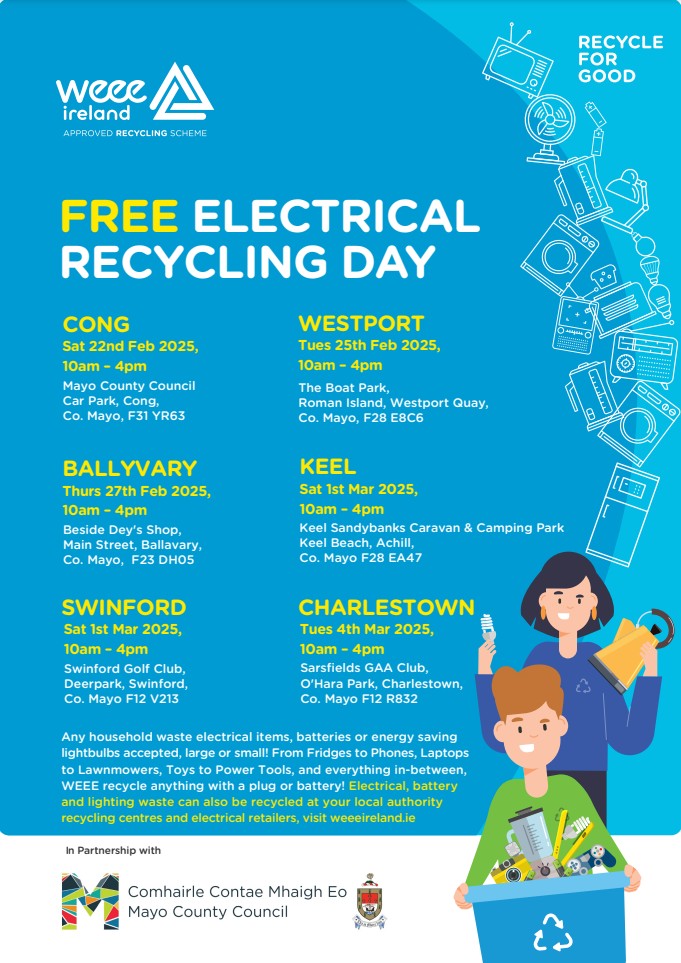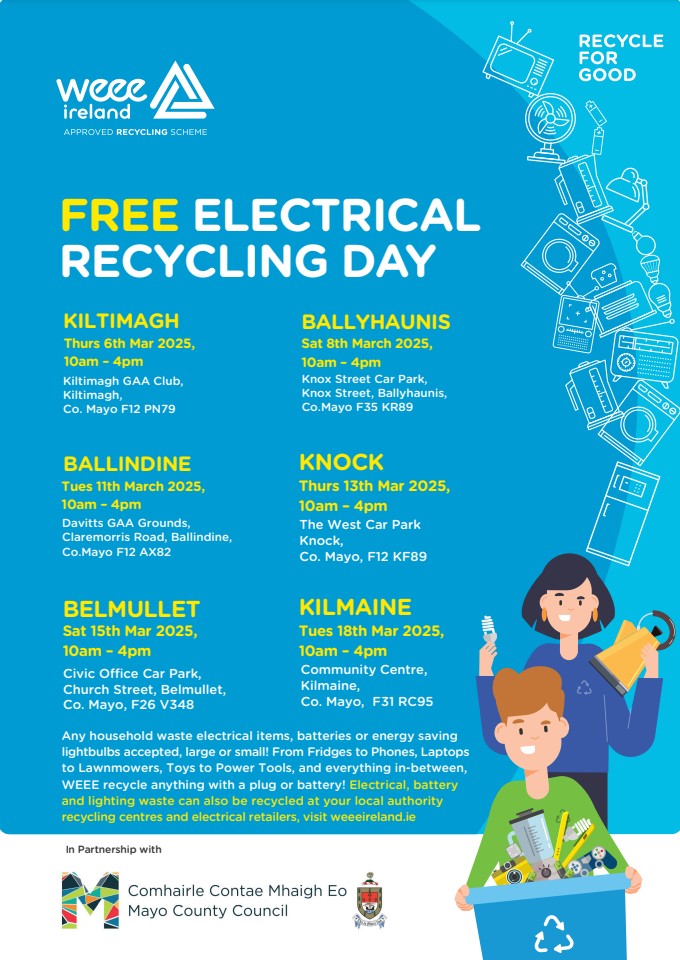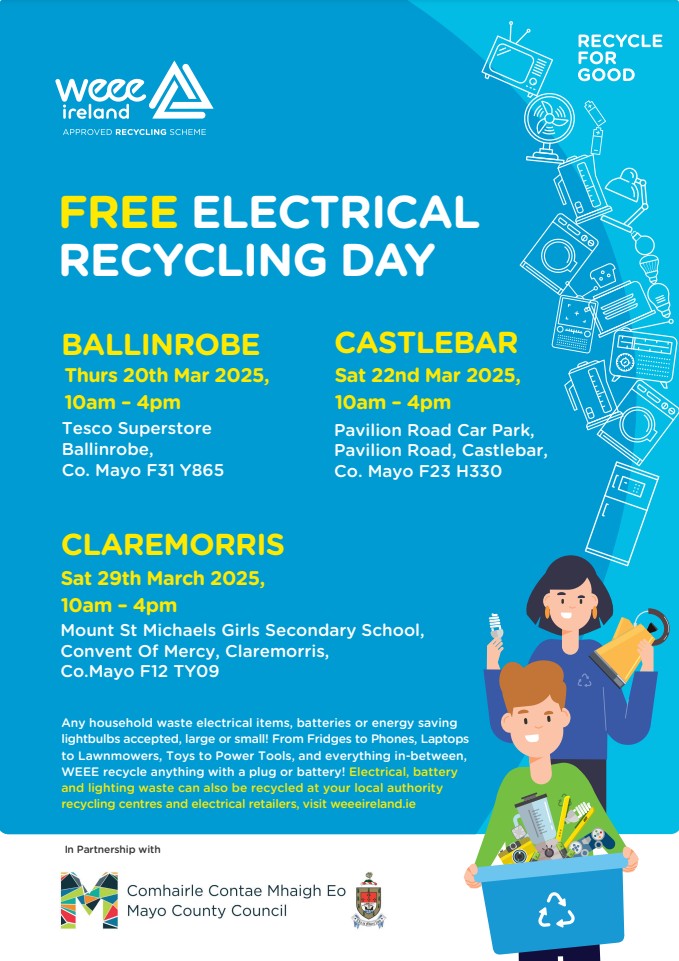
Mayo householders are being urged to bring their batteries, electrical, and electronic waste to a set of free collection days to help the county meet national e-waste recycling targets for 2025.
The events, hosted by WEEE Ireland in partnership with Mayo County Council, will take place in February and March at locations throughout the county.
Anything with a plug, battery or cable can be recycled for free at the events, including old washing machines, TVs, toasters and kettles, electronic tools and toys, cables, IT equipment, mobile phones, remote controls, batteries, including farm fence batteries, and even watches.

Caption: WEEE Ireland CEO Leo Donovan, Ethan Holmes (Age 10), Sienna Lavery (Age 10), and Freya Lavery (Age 6). Mayo householders are being urged to bring their batteries, electrical, and electronic waste to a set of free collection days, hosted by WEEE Ireland in partnership with Mayo County Council. Picture by Shane O'Neill, Coalesce.
“In Mayo, and across Ireland, we are buying more electrical goods than ever – with people purchasing an average 23kg per head in 2024, compared to the pre-Covid average of 16kgs in 2019,” said WEEE Ireland CEO Leo Donovan.
“Shopping stats show a surge in spend on new electrical devices like mobile phones, computers, small kitchen appliances and white goods.
“With old items still lying around many households we want to offer the opportunity to recycle these for free.
“People in Mayo have contributed greatly to e-waste recycling every year, with 1,388 tonnes of electrical waste collected in the county in 2023, and we want to encourage that trend.”
10.07kg of e-waste was recycled per person in Mayo in 2023 – falling just short of the national average of 10.33kg per person that same year.
WEEE Ireland warns that the nation needs to meet new forthcoming EU targets to recycle at least 25% of our annual consumption of critical raw materials from e-waste.
“An average of 80% of all e-waste that we collect is recovered for use again in manufacturing through both indigenous operators and specialist processors in Europe,” said Mr. Donovan.
“Most end-of-life products contain metals and minerals in higher concentrations than primary resources.

“These stocks of resources are the urban mines of the future, so our recycling efforts can have a significant impact on the environment.”
In 2023, the equivalent of 222,852 tonnes of CO2 emissions were avoided by recycling e-waste through the WEEE Ireland Scheme as opposed to landfilling. That is the equivalent of the annual carbon consumption of 4,457 hectares of trees.

WEEE Ireland accounts for over two thirds of all national waste electrical and electronics collection activity on behalf of 1,355 producer members.
These free events are in partnership with Mayo County Council.

“Recycling e-waste is incredibly beneficial for both the environment and the economy,” said Mr. Donovan.
“Together, we are diverting waste from landfill, recovering raw materials for reuse and ensuring hazardous materials are safely and responsibly disposed of.
“We look forward to working with Mayo householders to hopefully recycle a record-breaking amount of electronic waste in 2025.”
*Sponsored Content
Subscribe or register today to discover more from DonegalLive.ie
Buy the e-paper of the Donegal Democrat, Donegal People's Press, Donegal Post and Inish Times here for instant access to Donegal's premier news titles.
Keep up with the latest news from Donegal with our daily newsletter featuring the most important stories of the day delivered to your inbox every evening at 5pm.